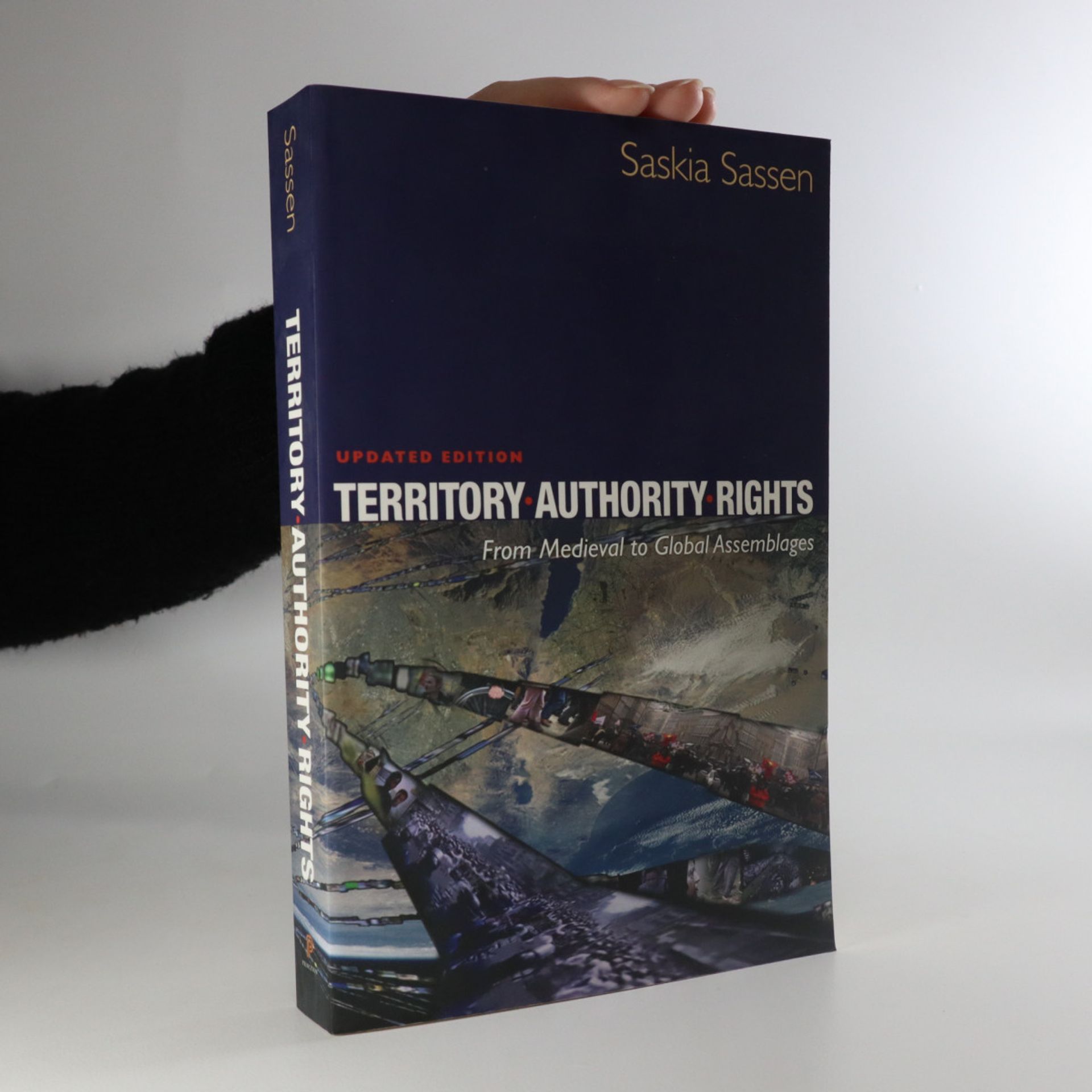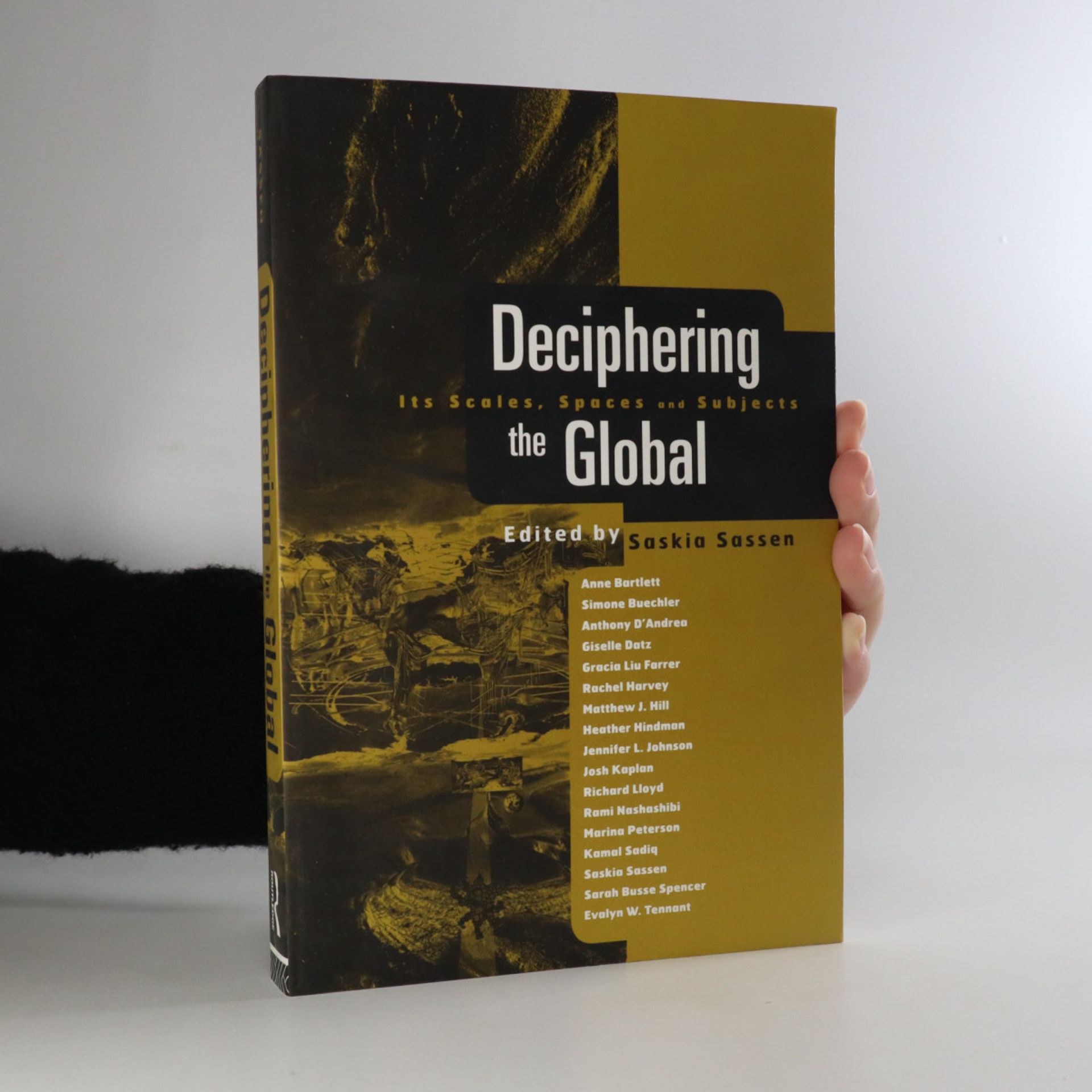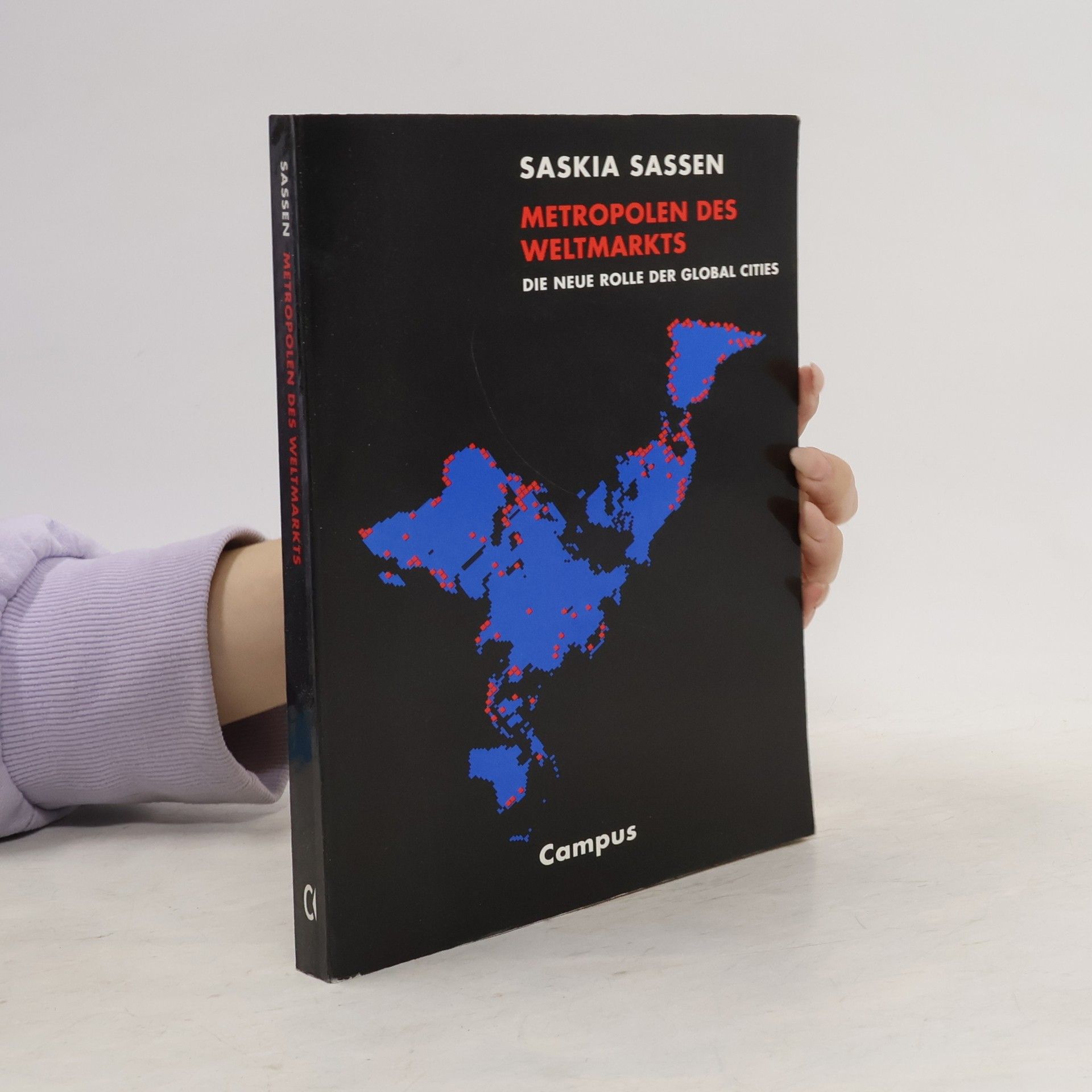Argues that even while globalization is best understood as denationalization, it continues to be shaped, channeled, and enabled by institutions and networks originally developed with nations in mind, such as the rule of law. This book also examines particular intersections of the digital technologies with territory, authority, and rights.
Saskia Sassen Knihy
Saskia Sassen je socioložka známá svými analýzami globalizace a mezinárodní lidské migrace. Její práce se zaměřuje na dopady globalizace, jako je ekonomická restrukturalizace, a na to, jak pohyby pracovní síly a kapitálu ovlivňují městský život. Zkoumala také vliv komunikačních technologií na vládnutí a pozorovala, jak národní státy ztrácejí kontrolu nad těmito procesy. Sassen popsala fenomén globálního města a je autorkou vlivných studií o transnationalismu a imigraci.






The Global City. New York, London, Tokyo
- 416 stránek
- 15 hodin čtení
This classic work chronicles how New York, London, and Tokyo became command centers for the global economy and in the process underwent a series of massive and parallel changes. What distinguishes Sassen's theoretical framework is the emphasis on the formation of cross-border dynamics through which these cities and the growing number of other global cities begin to form strategic transnational networks. All the core data in this new edition have been updated, while the preface and epilogue discuss the relevant trends in globalization since the book originally came out in 1991.
What determines the flow of labor and capital in the global information economy? Who can coordinate this system and bring order? What happens to territoriality and sovereignty, key principles of the modern state, and who gains or loses rights? This work examines the rise of private transnational legal codes and supranational institutions like the World Trade Organization and universal human rights covenants. It argues that while sovereignty remains vital, it is no longer exclusive to the nation-state; other actors are gaining rights and a form of sovereignty by establishing rules traditionally reserved for states. The author tracks the emergence of transformations in today's world, including the partial denationalization of national territory. Two key arenas emerge in the new spatial and economic order: the global capital market and the expanding international human rights regime. These quasi-legal realms now possess the power to demand accountability from national governments, ironically relying on the state for enforcement. From the economic shifts triggered by the Mexico debt crisis to ongoing conflicts over immigration and refugees, this analysis incisively explores events that have dramatically reshaped governance in an increasingly globalized era.
A work that chronicles how New York, London, and Tokyo became command centers for the global economy and in the process underwent a series of massive and parallel changes. schovat popis
A Sociology of Globalization
- 308 stránek
- 11 hodin čtení
In her groundbreaking book, sociologist Saskia Sassen identifies two sets of processes that make up globalization. One is the set of global institutions, such as the World Trade Organization, global financial markets, the War Crimes Tribunals and the new global cosmopolitanism. However, there is a second set of processes, frequently ignored by most social scientists, that occur on the national and local level. These processes can include state monetary and fiscal policy, networks of activists engaged in local struggles that have an explicit or implicit global agenda, and local and national politics that are unknowingly part of global networks containing similar localized efforts. Sassen's new book focuses on the importance of place, scale and the meaning of the national to study globalization. By emphasizing the interplay between the global and the local, A Sociology of Globalization introduces readers to new forms and conditions such as global cities, transnational communities and commodity chains that are increasingly common. Sassen's expanded approach to globalization offers new interpretive and analytic tools to understand the complex ideas of global interdependence.
Saskia Sassen is Ralph Lewis Professor of Sociology at the University of Chicago and Professor of Sociology at the London School of Economics.
Ausgrenzungen
Brutalität und Komplexität in der globalen Wirtschaft
Eine klare und harte Kritik der Wirtschaft des 21. Jahrhunderts Zunehmende Ungleichheit, krasse Einkommensunterschiede, Flüchtlinge, Zerstörung von Land, Wasserknappheit: Die aktuellen Verwerfungen in der globalisierten Welt können nicht mehr mit den üblichen Begriffen von Armut und Ungerechtigkeit verstanden werden. In ihrem neuen Buch schlägt die renommierte Soziologin Saskia Sassen vor, dass man sie viel besser als Ausgrenzungen verstehen muss: aus dem Berufsleben, dem Wohnort, aus der Biosphäre. Erst dieser gemeinsame Gesichtspunkt macht eine luzide politische Analyse möglich, welche die grundlegende Logik und den Zusammenhang dieser scheinbar getrennten Effekte sichtbar macht.
Fuori controllo. Mercati finanziari contro Stati nazionali
Come cambia la geografia del potere
- 160 stránek
- 6 hodin čtení
In a world of free trade, the Internet and mass migration, national borders seem to matter less and less. What implications does this hold for citizenship, sovereignty and other old-fashioned features of political and economic life? Sassen says that we're headed for a future of international mediating organizations like the United Nations and the European Community. She hesitates to make sweeping judgments, but ably lays out the possible contours of the next world order. A good companion to Kenichi Ohmae's The End of the Nation State.



